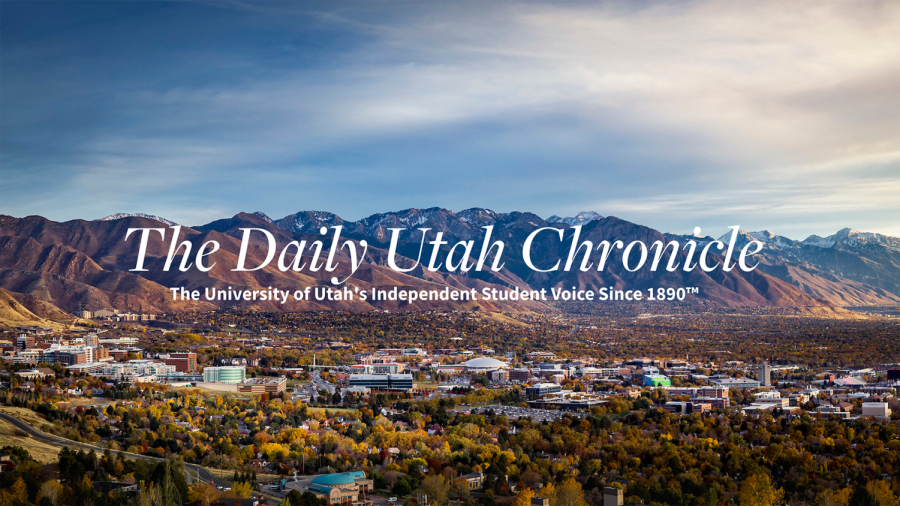Alexander: Stop Policing POC Reactions to Queen Elizabeth’s Death
September 14, 2022
British monarch Queen Elizabeth II passed away last week at the age of 96, and her death has been met with mixed reactions. While the UK and world leaders mourn her, other groups — particularly people of color and those whose nations fell victim to British colonization — rejoice in her passing.
Some reactions have been extreme. One Carnegie Mellon professor wished the Queen an “excruciating” death hours before she died, and Irish soccer fans mocked the announcement with a cruel chant. Black Twitter wasted no time at all sharing memes, and Instagram pages dedicated to Indigenous and minority voices refused to honor her, instead condemning the monarchy.
Considering the history and devastating impacts of British colonization, we shouldn’t police BIPOC reactions to the Queen’s death. If anything, they address what our history books don’t.
History of the Monarchy
The British Empire’s colonial conquests were incredibly far-reaching and lasted for centuries. Sixty-five countries were born from British rule, and some are still fighting. Most African countries didn’t gain independence until the 1950s and 60s, and for Zimbabwe, 1980. Belize only gained independence in 1981, and in 1997, the UK handed Hong Kong over to the Republic of China following a 152-year occupation.
During their reign, Britain committed terrible atrocities that continued well into the 20th century. In 1943, India suffered a devastating famine, and instead of feeding the millions dying of starvation, the British exported India’s food supply to troops in the Mediterranean. In 1952, the British forcibly removed, tortured and killed hundreds of thousands of Kenyans to squash a political revolt, and hid this fact through fake official documents. From 1948 to 1960, the British waged a war in Malaya (now Malaysia) where they set fire to homes and farmland, moved 400,000 people to concentration camps and sprayed Agent Orange on food crops to starve the country. And in 2015, British planes and bombs spearheaded the indiscriminate killing of nearly 100,000 people in Yemen, which added to their previous kill-count of 200,000 from the 1960s.
Even if downsizing efforts of the British Empire occurred under Queen Elizabeth II, there’s no denying the damage inflicted upon those formerly living under British rule. Their colonialism, along with that of other empires, left nations and people lost, impoverished and bitter.
Lasting Impacts
Some countries are still reeling from colonization. Ahoefa Daniéle Degbesse, a SLCC student from Togo, said, “My country didn’t really recover after colonialism … our economy didn’t go up, nothing really worked out the way that we wanted things to go … our environment and the way people lived did not really recover after we got our independence.”
U student Olusegun Oyewole, from Nigera, said, “British colonization … sets the scene for a lot of the discord you see today in the country.” Oyewole explained that after Nigeria gained independence, the three main tribes — who did not get along — were forced together by the British to run the country, resulting in political turmoil.
Unfortunately, most of the textbooks within these former colonies play up white saviorism and put colonizers on a pedestal. Nara M. A., a U student from India, said that “textbooks would say stuff like ‘oh the British rule was great, it gave us technology, it did all this and that.’” But there were only small portions of her textbook that touched on the severities of colonial rule. Nara explained that because colonists wrote the textbooks, they teach former colonies that their lives are better because of colonization. And the lasting impacts can be seen on beauty standards, media representation and economic development within these former colonies.
Despite the Royal Family’s role as figureheads of Parliament, the Queen still represented colonization to many. Her reign was characterized by colonialism, and her family continues to reap the benefits of her predecessors’ atrocious exploits.
Because the evidence is stacked against the monarchy, we shouldn’t invalidate how POC react to the Queen’s death. Rwothomio Kabandole, who works for the Uganda-based organization No White Saviors, said over email, “As an African person, I am still subject to colonial terms & conditions. However way people express themselves towards her demise is within their rights.” Kabandole went on to say that despite the reactions, he will stand strong in “holding the record straight as to who the architects & upholders of our oppressions are.”
We shouldn’t fault people for expressing themselves accordingly when they have been subjected to the lasting impacts of British colonization. And we definitely can’t expect anyone to demonstrate sympathy towards those who failed to extend the same to them.









Braden • Sep 16, 2022 at 9:08 am
Am I to believe that today’s textbooks in India are chosen by the British? If so I would love to see a scholarly article about it. Seems concerning if true, but difficult to believe.
Also, while responses to the Queens death are valid on all sides. No response should be as inhumane, as to wish torture on someone. There is no room to wish excruciating pain on someone regardless of how valid their opinion is. It doesn’t constructively add to an argument, and only leaves more hate in the world.
Sometimes arguments made with pathos can be so convincing, that it changes the perspective of an individual making them feel like it’s justified to be hateful. My personal opinion is that we should try to limit hate, even in situations where it feels justified.
John Hedberg • Sep 14, 2022 at 3:19 pm
CJ, you write an article policing the opinion of people you label with “white saviorism”, a nice dehumanizing Marxist buzz-term which attempts to stigmatize anyone who disagrees with you as racist, when it’s you that sees everyone around you in racist terms! Then you tell us not to police other people’s opinions, even while you attempt to intimidate (not include) diverse opinions with your false accusation of racism, which you actually practice yourself.
Don’t you ever listen to your own hatred and hear your own blatant bigotry?
Colonialism ended generations ago, and even your article admits that tensions within former colonies are between groups who live there, not between those countries and the Commonwealth. That means the hatreds are between the “BIPOC” people, probably fomented deliberately by Marxists attempting to exploit superficial divisions to gain power, so they can do what they do best: kill millions of innocent people in the name of compassion they never actually practice.
Atrocities are always wrong, even the Marxist genocides that filled the 20th century all across the planet. Why not stop fomenting Marxist hate between people who are presently learning to “Love one another”, and learning get along? Why do you chastise innocent people for hatreds which they don’t practice, but which you do? How is your hatred and bigotry right, when you say hatred & bigotry are wrong?
Maybe you need God (by whatever school). Dr. King chose to get his degree in Theology as a Christian minister, because he believed we’re all family, brothers & sisters, children of the same Infinite Love, and his dream was that we’d all sit down together that way in time, not seeing or judging individuals by superficial appearances, but by the content of what’s within each of us, which in all its diversity is still fundamentally human and share-able: beauty, talent, intelligence, compassion, understanding, forgiveness, Love (the family kind), great worth! He said that hate (which seems central to your theme) cannot drive out hate, only Love can do that.
There’s a reason he’s universally revered worldwide. Have you ever considered that Love really is the only way all spaces become “safe”? He chose Christian ministry for his doctorate at Marsh Chapel, because he understands the Infinite Love which underlies all our mutual human diversity, and that was his message that heals all wounds.
“Got Love?” Maybe try it sometime, with deliberation.
[Partial Re-Tweet]
Love is not a feeling which happens to you, but a choice in how we look at others, and how we choose to act for their well-being and better interests, for their happiness. It does not ‘come easy’, especially when you’re under fire!, but I find it always leaves me feeling like I was true to myself, for providing for others what I wished so often others had provided for me, when I was struggling. I feel complete somehow when I show people the mercy I often didn’t get, often at the times they didn’t expect it themselves. That can change you on the inside, even as it changes others in that same positive way!
Love one another!
Or whine and complain and hate other people, in the same way you complain they whine and hate toward you, and that circle leads right down the drain, no one ever getting any happier, healthier, or wiser before everything implodes, as it always does (the 20th Century is littered with examples of Marxist identity politics resulting in the needless deaths of innocent neighbors and family members, by the tens of millions! We know better, having read history~)
Best, with Love, always
J Hedberg